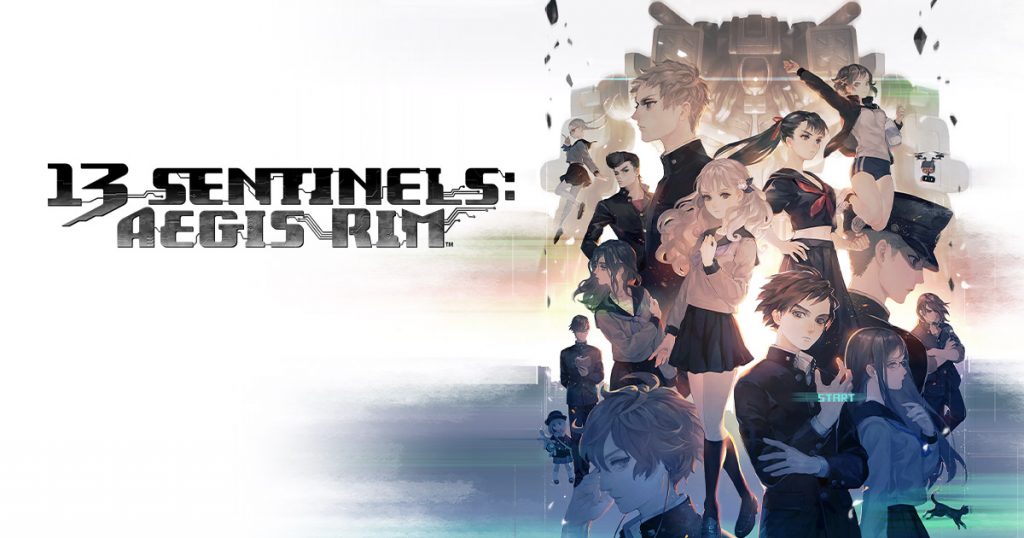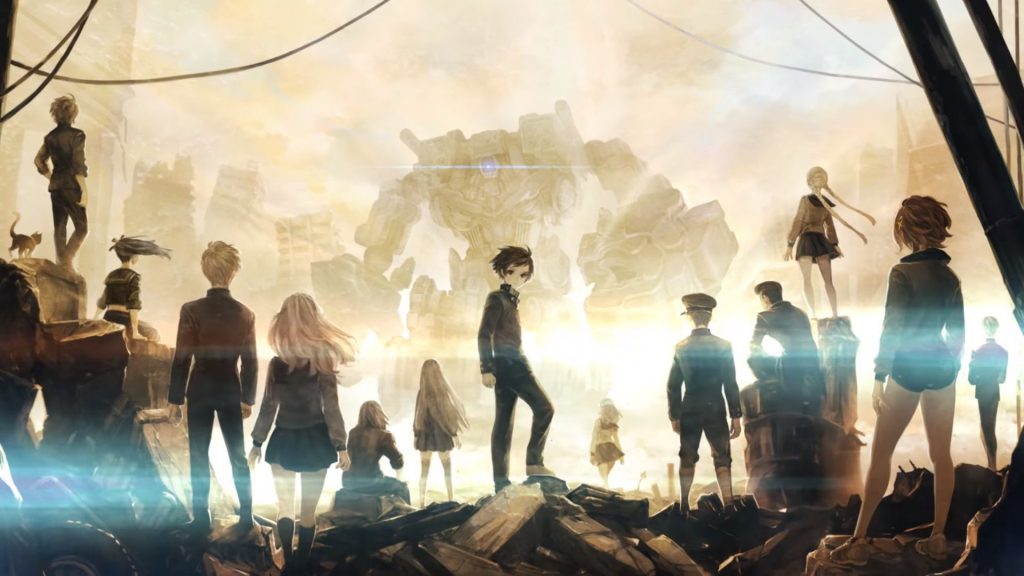
This isn’t even a visual novel – but not a big deal.
Juusan Kihei Boueiken (localized as 13 Sentinels: Aegis Rim) is a highly-produced, narrative-focused game with a line length comparable to that found in a medium-length visual novel. The story is told through 13 shifting perspectives, frequently out of chronological order. The result is pretty spectacular – a complex & intriguing mystery gradually unraveled. Surprisingly, 13 Sentinels pays extra attention to be clear with what goes on – with an in-game glossary & visualized timeline. This is invaluable, as the work has many moving parts – the significance of which is obfuscated until the end. The plot itself is best described as a novel take on overused plot devices (time travel, multiverses) – the result is predictable, but the execution is engaging. 13 Sentinels, for better or worse, is an extremely consistent work – there are no ‘twists’ or moments that stand out – it’s constant good writing that snowballs into “great.”If I were to compare 13 Sentinels with other games, I’d say it reminded me most of Baldr Sky – only with a less compelling worldview, but otherwise, more consistent, well-paced writing. While Baldr Sky felt more unique (especially for its time) with its setting & writing, 13 Sentinels, while more conventional, felt substantially more polished & clean. Personally, I didn’t like 13 Sentinels as much because the work lacks depth past its superbly-executed mystery. While it successfully develops a grand world & raised interesting questions about its world, it didn’t engage with it at length. This can be attributed to 13 Sentinel’s terse writing – composed primarily of dialogue & thoughts that directly advances the plot/worldbuilding (minimal exposition & writing concerning the character psychologies or themes). Playing through 13 Sentinels felt more like watching an anime than reading a book (I’d liken the storytelling comparable to that found in an ordinary JRPG – not a visual novel). But, I think that other players might like the work more because of this (it’s far easier to get into – more alluring for mainstream audiences).

The writing outside of the mystery/central plot was as a whole, pretty solid. There’s romance in 13 Sentinels – where each character gets ‘paired’ off by the end. The pairings kind of make sense – but was generally not developed (not a big deal, as 13 Sentinels isn’t really a romantic work). I appreciated the way that 13 Sentinels told its story, where each player’s experience will differ depending on the order they played through the characters’ stories (the game limits story progression, where the player cannot just focus on one perspective until the end). I think that 13 Sentinels is actually pretty innovative as a game that actually puts the narrative in the forefront, while maintaining the high production generally given to traditional games (not novel hybrids). On this note, fans of the Kiseki series will probably appreciate this game.
13 Sentinels has gameplay, but it doesn’t really integrate the gameplay in with its story (instead, the player reads through the story, then does gameplay to unlock more story). Chronologically, the gameplay occurs at the ‘end’ of the story – so integrating it wouldn’t have been the most straightforward; but I feel that there was a more elegant way to do it. The gameplay itself was fun – the right mix of complexity & intuition (I played on the highest difficulty). I appreciated that the game encouraged character diversity through the burn-out system (where you could only use a character for two battles consecutively before they had to rest). While at times, it felt kind of like a mobile game, at worst, it’s a fun mobile game.

The game’s greatest strength outside of its consistent, ‘clear’ writing is its production quality – ranging from its atmospheric, immersive soundtrack to its drawn art. 13 Sentinels lacks CG art, but the reader is never left wanting for more visuals. I read through 13 Sentinels in English, as opposed to the usual Japanese, because I actually believe in console localizations (as with Utawarerumono). The translation quality was really solid – the dialogue especially felt natural (possibly a result of the game having an English voice acting option – best of luck to whoever chooses that).
Ultimately, I enjoyed the read – but I don’t really know how memorable it’ll be.